Dissent in Enemy of the State
When the espionage thriller is discussed amongst cinephiles, the first two names people mention as masters of the genre are most likely Hitchcock and De Palma. With varying levels of psycho-sexual tension, and duplicitous government acronym agencies, the template was well established by the time the 90’s rolled around. The turn of the decade marked a peak era for the genre, with Tom Clancy and John Grisham adaptations becoming a dominant box office force. But one could argue that once Tony Scott got his hands on the genre with 1998’s Enemy of the State, it would give the genre the kind of credibility it did not have before.
The film stars then-rising star Will Smith as labor lawyer, Robert Dean, as he finds himself caught in the middle of a government firestorm of corruption, murder, black ops work, targeted surveillance, and media scrutiny all at the hands of the NSA. When his struggle to clear his name becomes a desperate act of federal defiance, he finds an ally in Gene Hackman’s Brill, a mysterious hacker who seems to know how to combat the agencies gunning for them. There are a lot more narrative threads woven throughout including college friendships, adultery, surrogate parentage, mafia ties, illicit Christmas gifts, and why cats make for great pets. As convoluted as that all sounds, there’s nothing confusing about the film. You never lose sight of what’s important to our main characters, and the A-list supporting cast function and behave in realistic ways. There’s a vast amount of talent acting in peak form in this film, and it’s one of the all-time IMDb pages because of it.
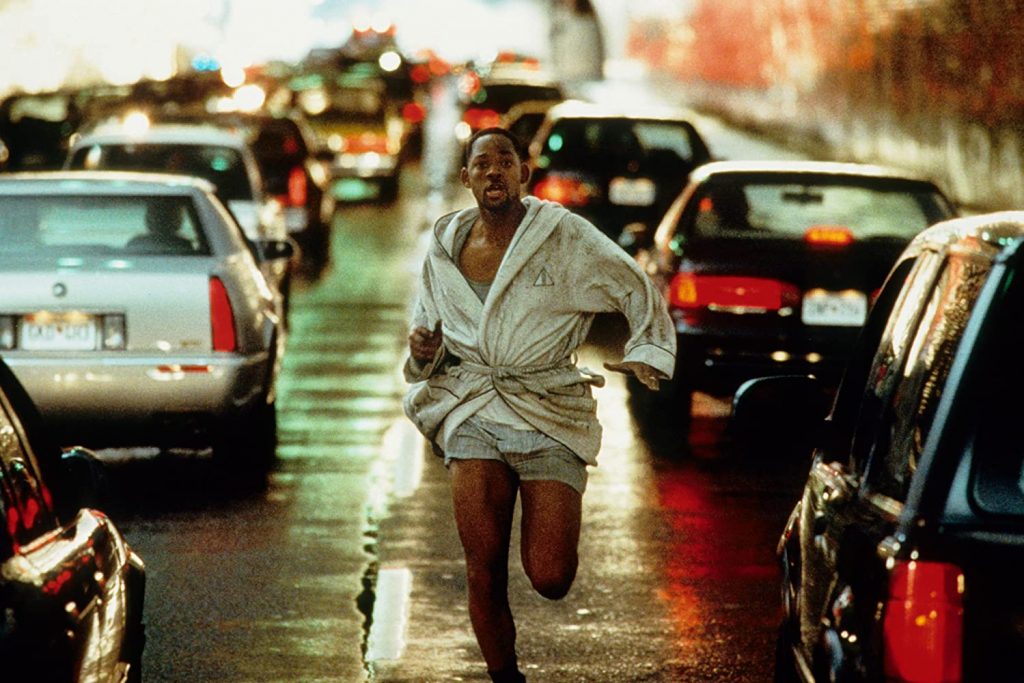
The late Tony Scott is widely held as the auteur king of American action cinema. None of the action films we have consumed during or since he hit the scene would have their visual languages without his unique style. The Bourne films, modern chase sequences, Michael Bay and many others all owe him a great debt. While Scott had perfected his vision long before this film, the injection of his style into politically-dense material like David Marconi’s screenplay is the lightning in the bottle here. Can you imagine what it would be like to be the target of a government conspiracy, simply for being in the wrong place at the wrong time? If you can wrap your mind around that, I’m sure Scott’s frenetic camera work and light speed editing would illustrate that image.
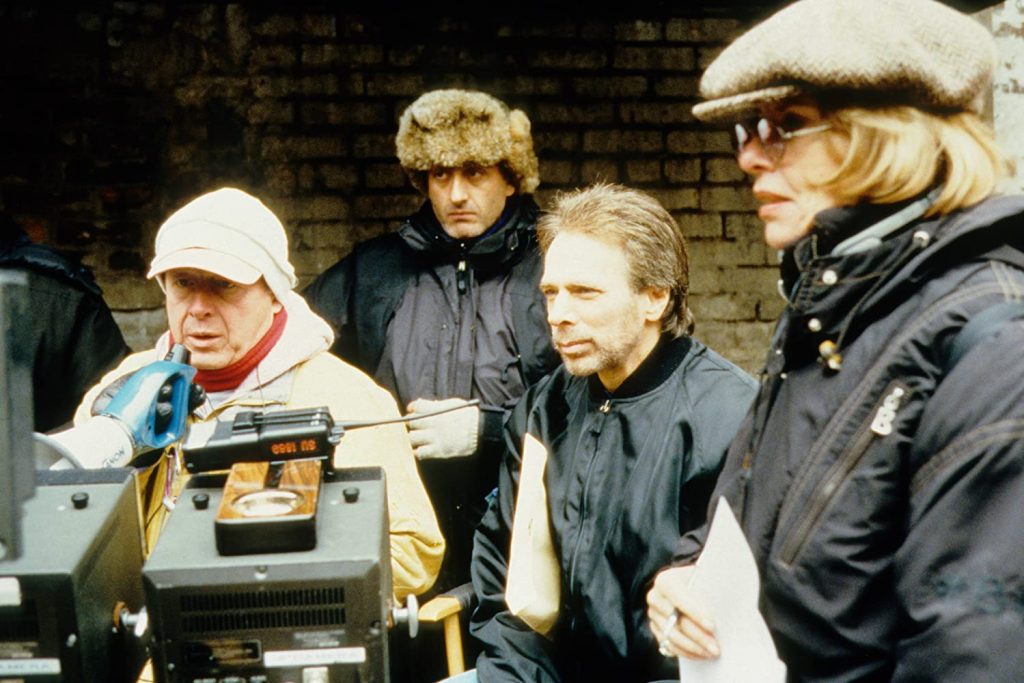
Everyone likes to idolize Brando, Streep, or Day-Lewis as the apexes of film thespians, but let’s make the case that Gene Hackman beats them all out. He didn’t need to do an accent, he never had a whacky haircut, he didn’t always need to be the main focus of a film, he didn’t have to be the best looking guy, he never did any brand management, he never phoned it in, he never disrespected the audience, he was simply always a professional. I’m sure he will pop up again on this blog, based on how many of these kinds of movies he did in the 90’s alone (all of them great), but it needs to be stated now that as great as Enemy of the State is, it is nothing without Gene Hackman. Action movie cliche dialogue and exposition become poetry out of his mouth, the way he reacts to the chaos of a car chase becomes nuanced character beats, and all of it is interesting and the best possible version that we could have gotten. It’s easy to see why Will Smith (and every other young star who worked with Hackman) would have given an arm and a leg to get to act alongside him.
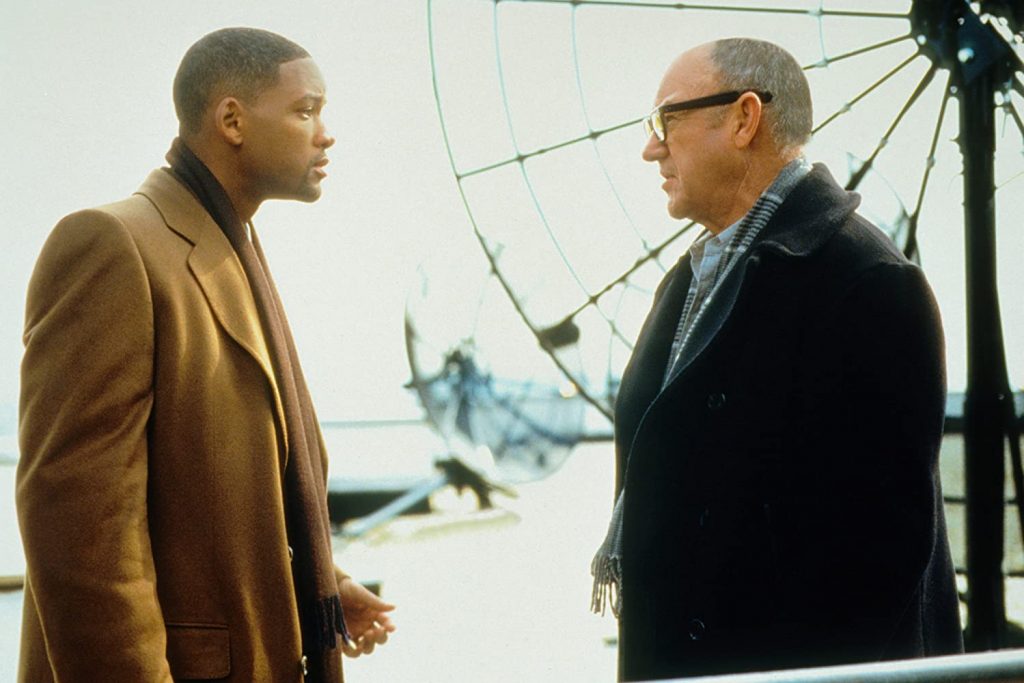
There’s a lot to gush over with this film, it’s no surprise it is one of the all-time cable re-runs you have to see through to the end, no matter what scene you tune into. The uniquely remarkable thing about this film is how much it got right. Sure, some of the 90’s computer screens are dated, and the machine that guesses that a shopping bag got heavier using CCTV footage would make Dr. Evil roll his eyes, but the idea of mass surveillance by federal powers is provably accurate. Who you dated in college, what you bought your child for Christmas, what you took a picture of in the park, what you emailed to a co-worker, where you buy your coffee grounds, it is all fair game in the government’s eyes. They will use any means necessary to use technology to “protect” the populace, which is why they use it in this film to ruin Robert Dean’s life, for the mere suspicion that he has evidence that a congressman was murdered by an NSA official.
It’s hard to believe that this movie would be made today, Hollywood doesn’t seem to want to protect the privacy of the masses, although it’s clear they want to protect their own. There is no consensus amongst the citizens as to whether freedom and privacy are valuable moral commodities, let alone birth rights. The film sparks more debate today than it most likely did 22 years ago, which is the mark of great cinema; being highly entertaining and culturally significant. This film comes from a truly unique era of mainstream entertainment, one that we here at RV look back fondly on and are eager to revisit.


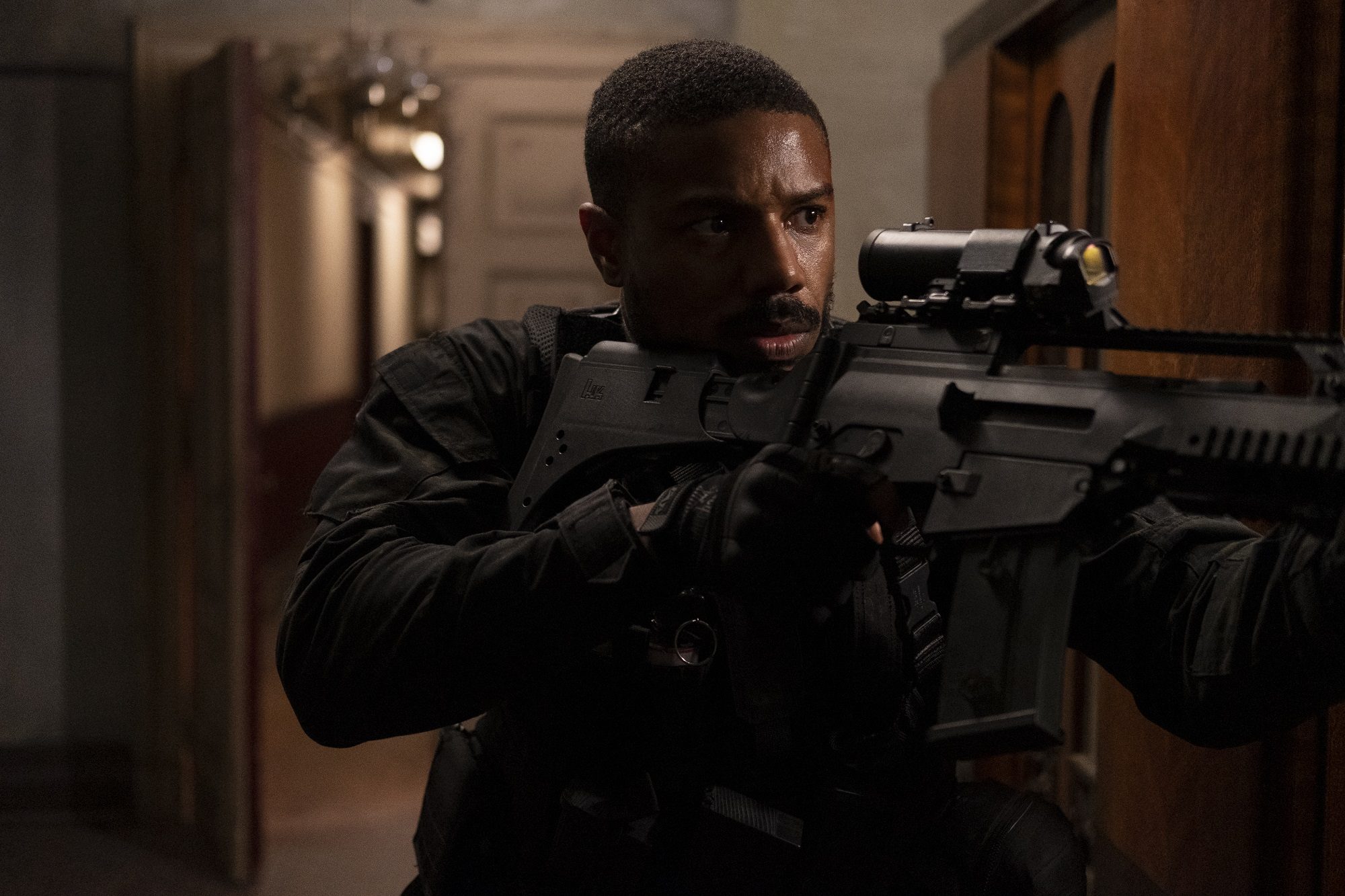
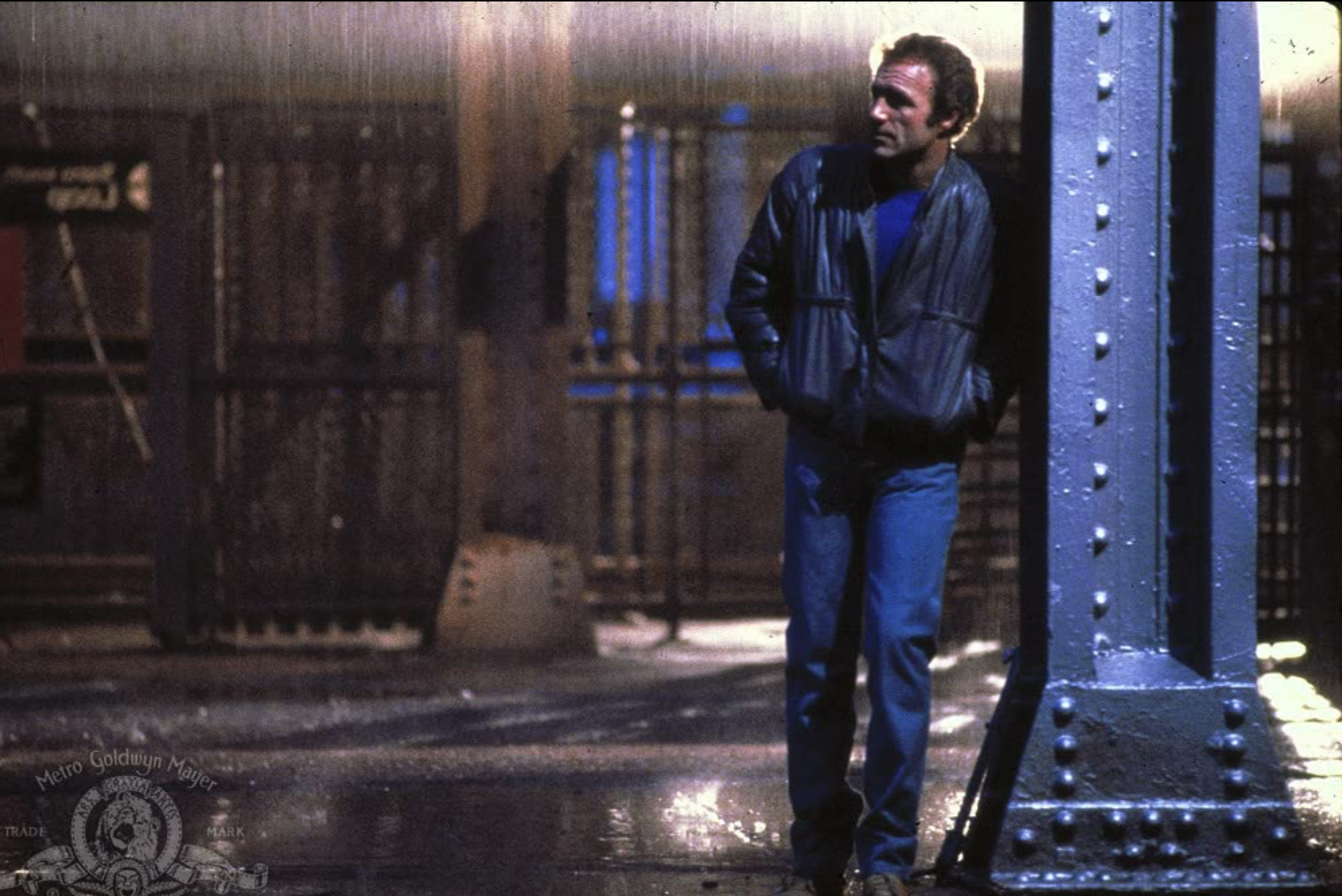
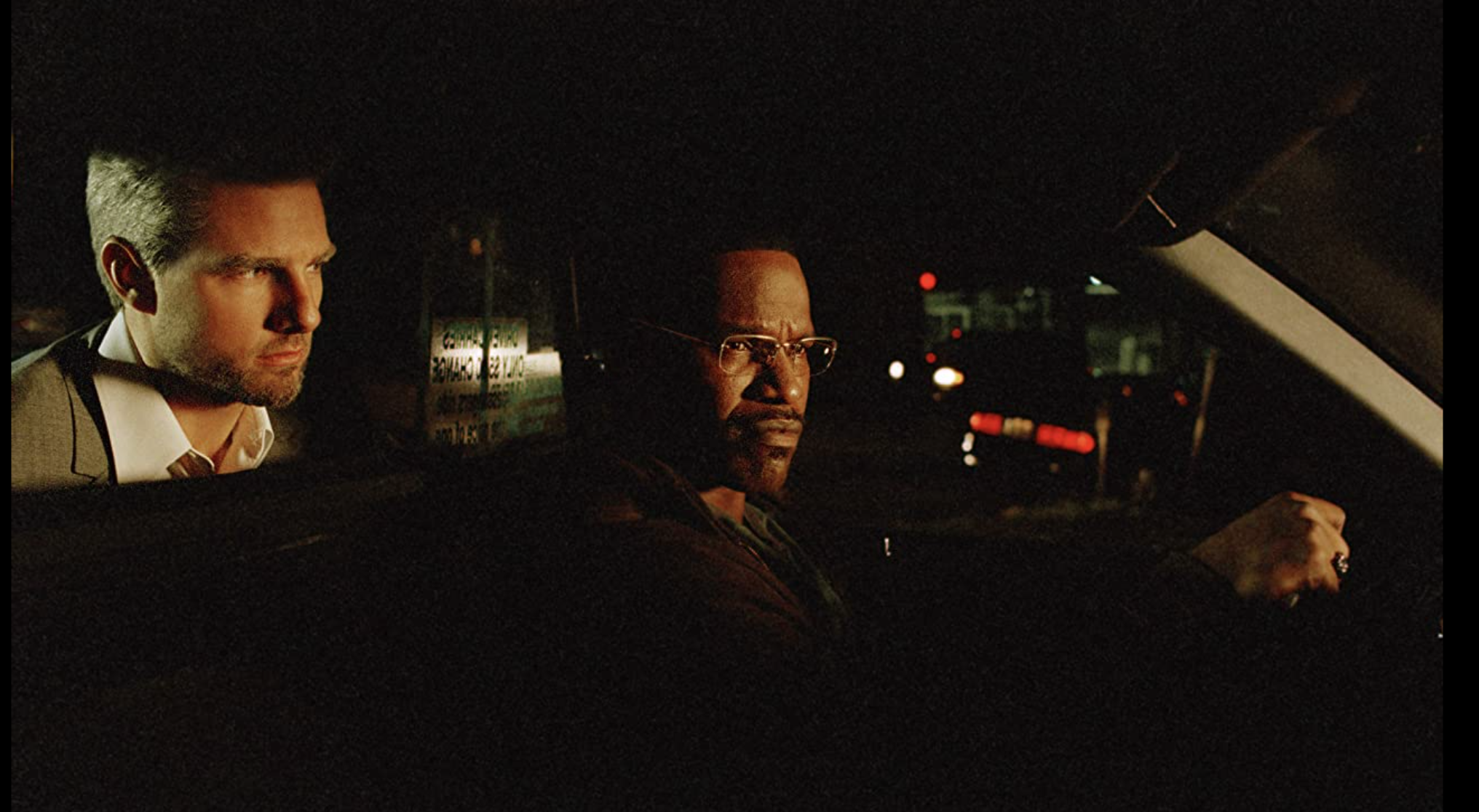
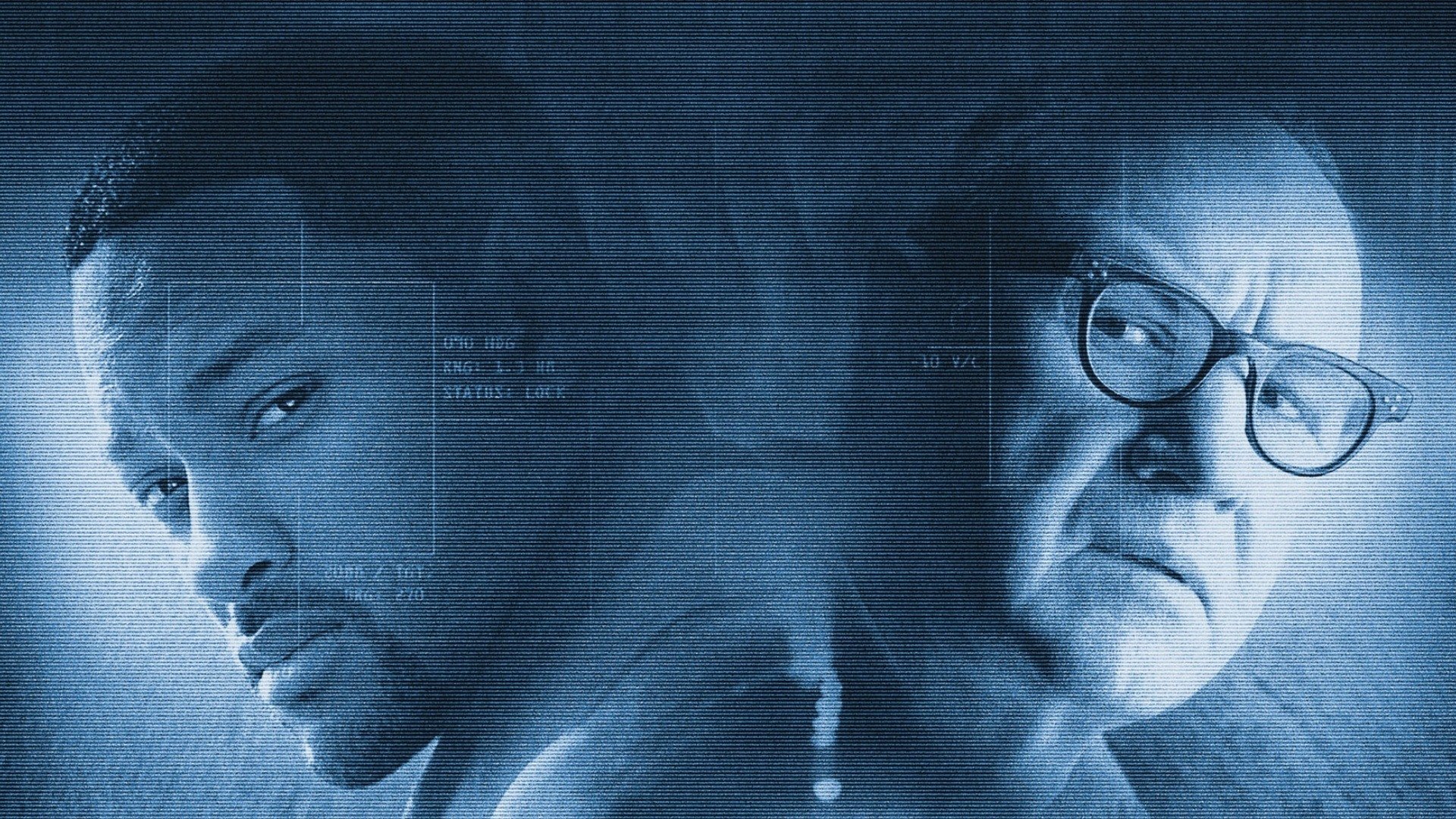
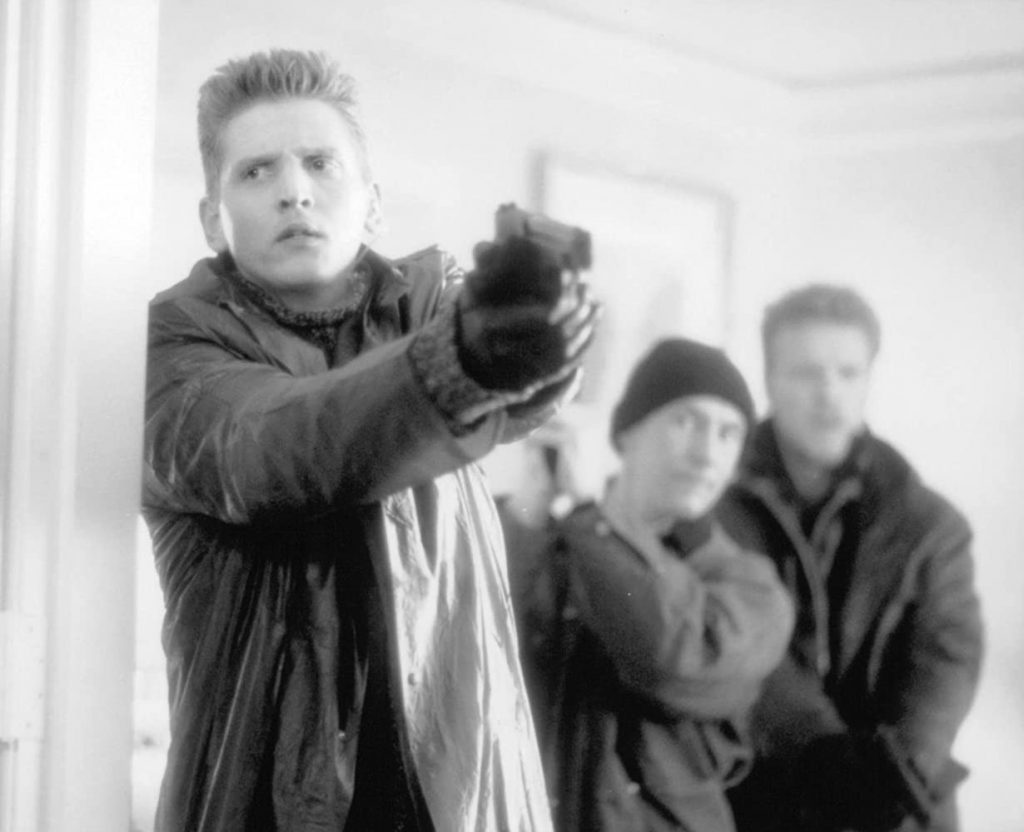
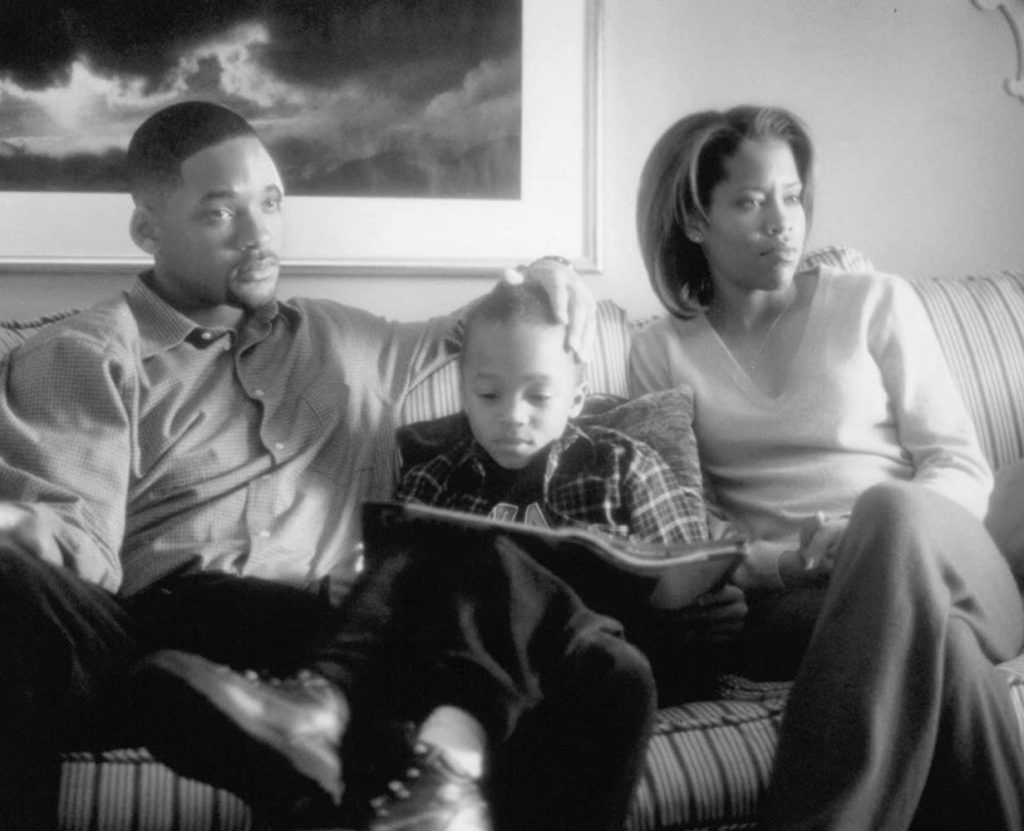
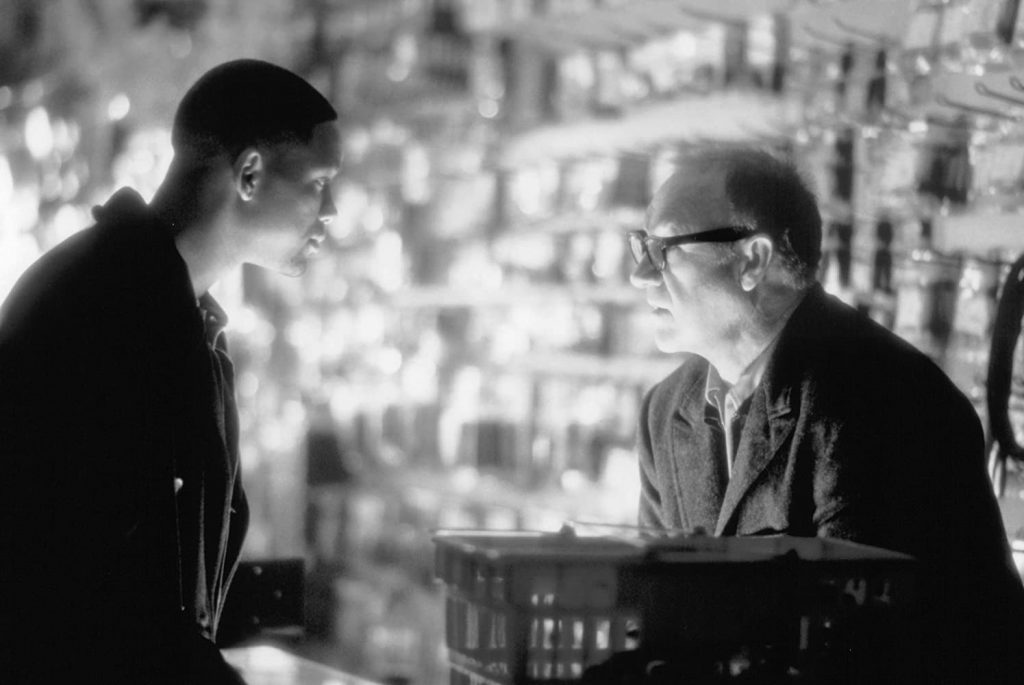
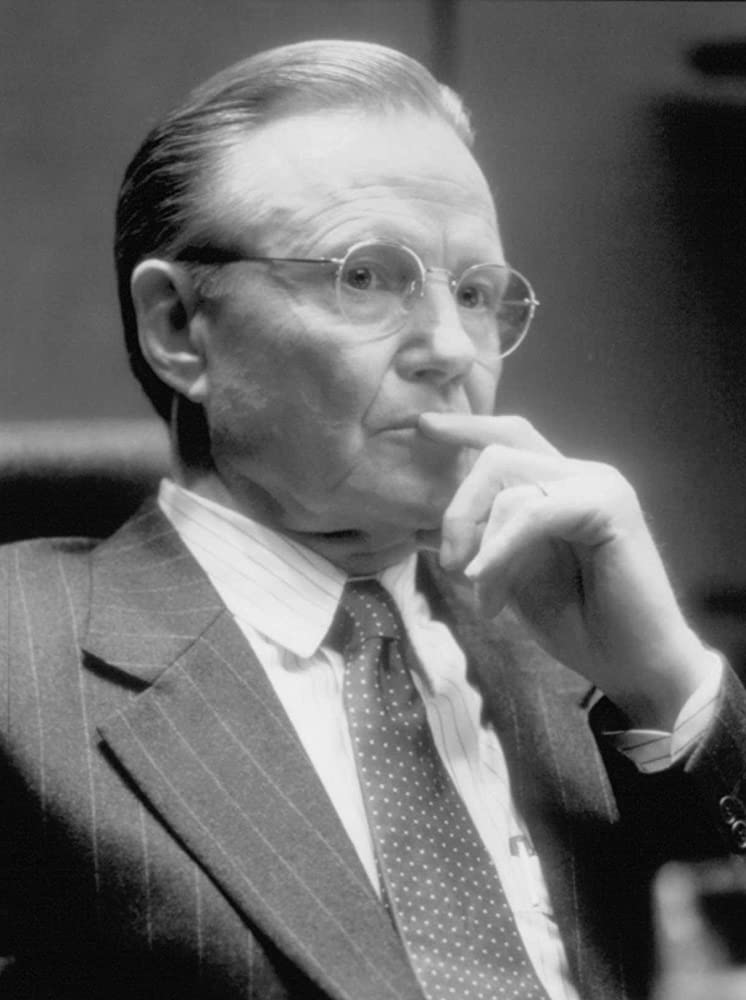
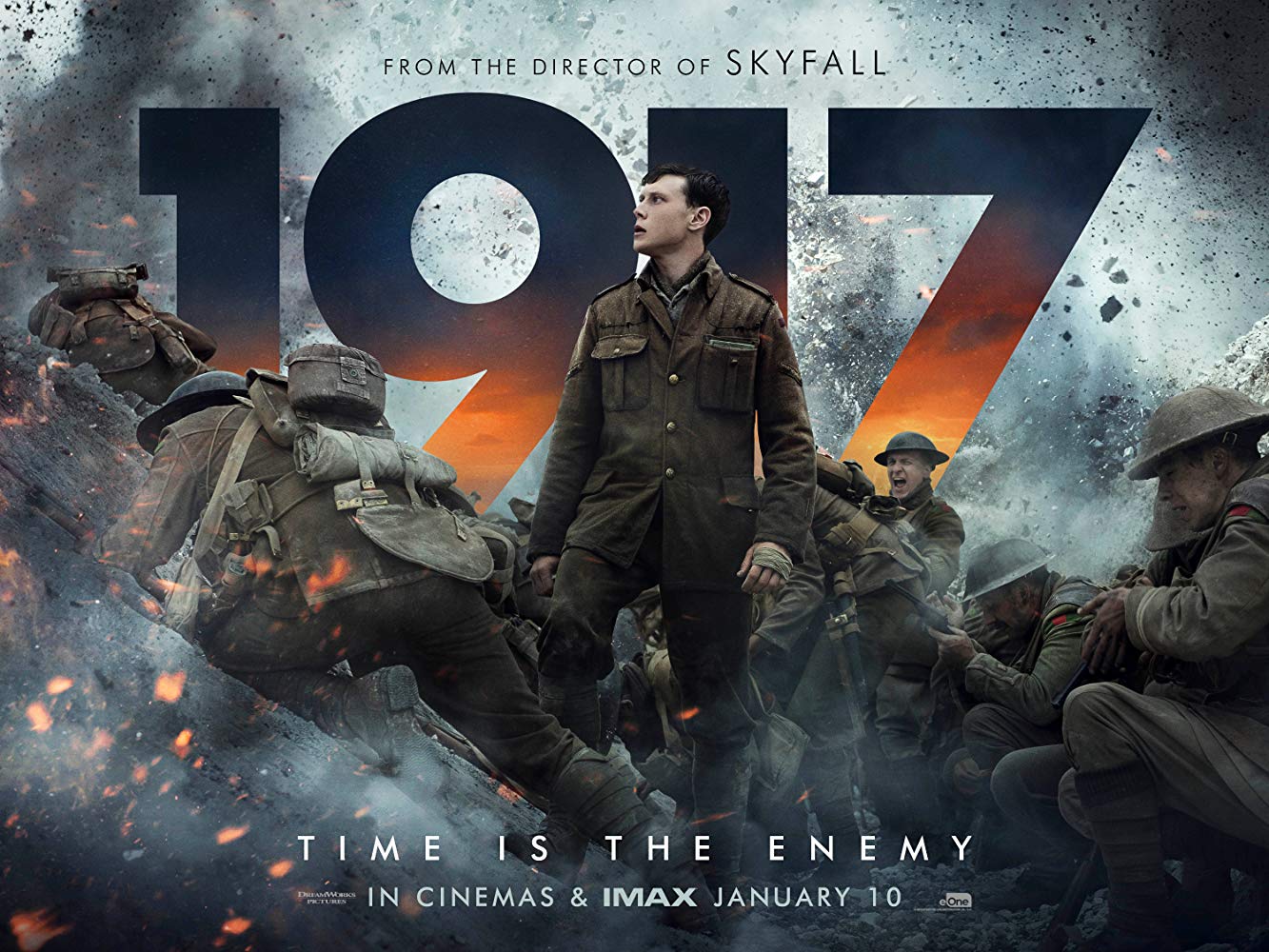
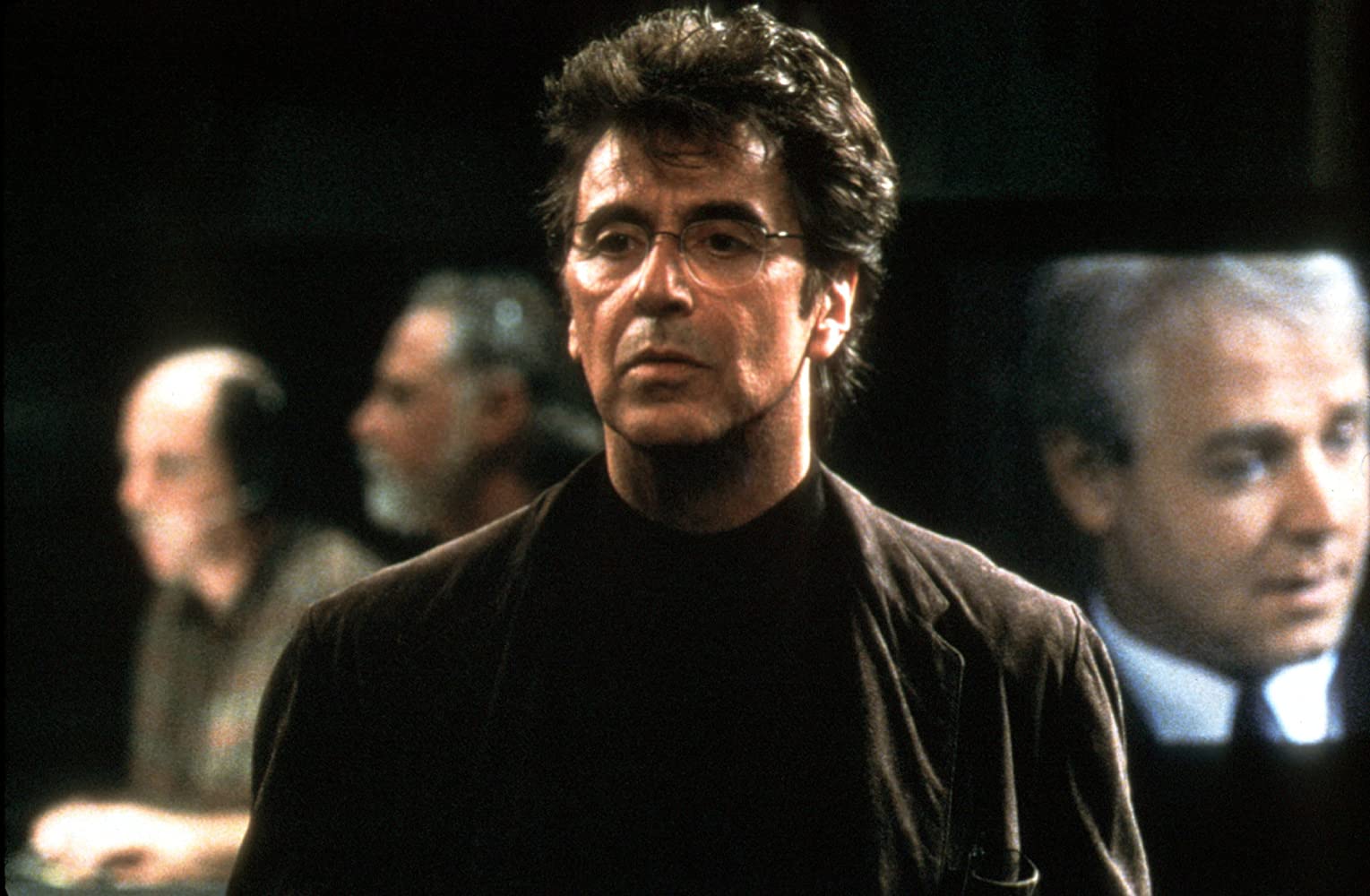
Comments